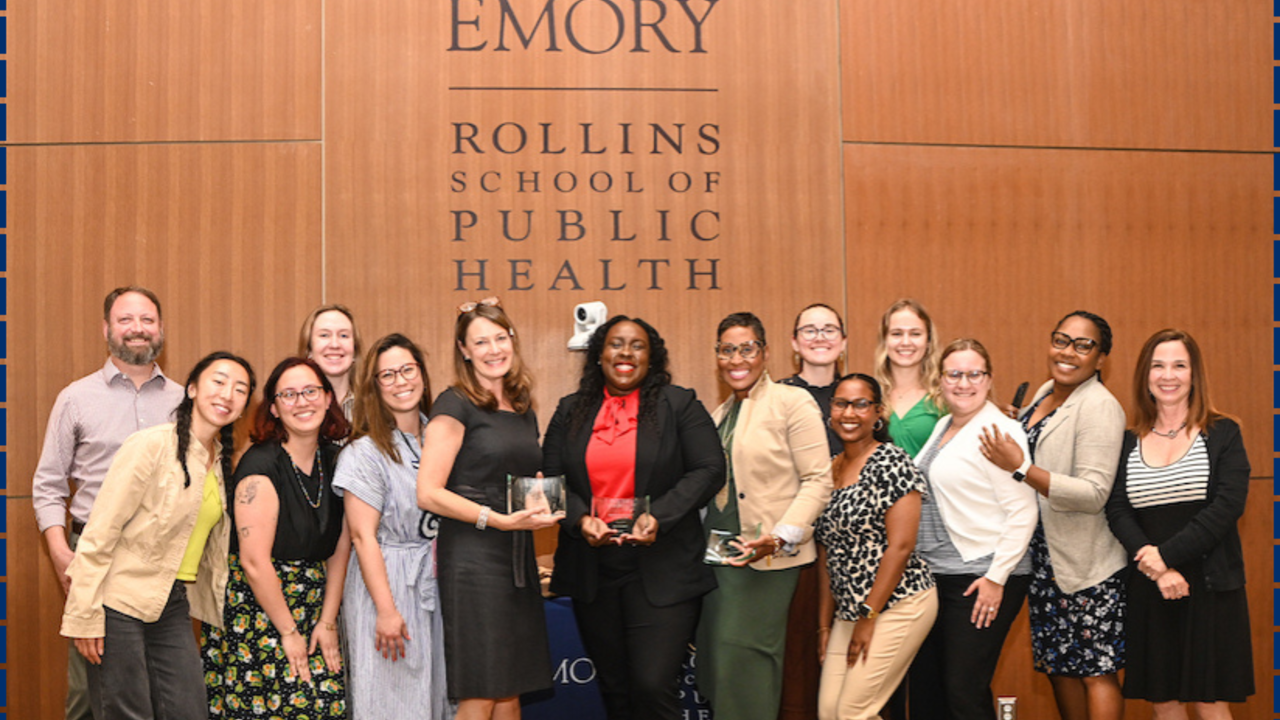Department of Epidemiology

On This Page
Department Overview
In the Department of Epidemiology, we strive to advance knowledge on the causes, prevention, and control of disease to improve public health and reduce health inequities through research, education, and policy.
Advance Knowledge. Improve Health.
EPIWhy EPI?
Programs
Programs in Epidemiology
The Human Health BA /Epidemiology MPH 4 + 1 program is a distinctive opportunity for high-achieving students who seek career paths in epidemiology. Accepted students begin graduate-level epidemiology coursework during their fourth year at Emory College, enabling completion of their BA and MPH in five years.
View ProgramThe MPH in Epidemiology prepares students to advance knowledge on the causes, prevention, and control of disease to improve public health and reduce health inequities through research, education, and policy. Students leave the program with both epidemiologic training and broad exposure to other public health disciplines, and the ability to identify, collect, manage, analyze, interpret, and report population-based data to drive disease control and prevention.
View ProgramThe MPH in Global Epidemiology (GLEPI) provides global context for epidemiologic training. This joint program offered in partnership through the Department of Epidemiology and the Hubert Department of Global Health prepares students for careers in disease surveillance, prevention, and research in global settings.
View ProgramThe Master of Science in Public Health (MSPH) in Epidemiology is a professional degree designed for students with strong quantitative skills seeking a more in-depth education in epidemiologic methods. The MSPH program provides broad exposure to public health training, with emphasis on epidemiologic approaches with a strong quantitative focus. This degree program is particularly well-suited for students who are interested in a research-focused career.
View ProgramThe Master of Science in Public Health (MSPH) in Global Epidemiology (GLEPI) is a joint program offered by the Department of Epidemiology and the Hubert Department of Global Health. The GLEPI MSPH degree provides global context for epidemiologic training and is designed for students with strong quantitative skills seeking a more in-depth education in epidemiologic methods. This degree program is particularly well-suited for students who are interested in a research-focused career.
View ProgramThe online part-time MPH in Epidemiology prepares students to advance knowledge on the causes, prevention, and control of disease to improve public health and reduce health inequities through research, education, and policy. Students leave the program with both epidemiologic training and broad exposure to other public health disciplines, and the ability to identify, collect, manage, analyze, interpret, and report population-based data to drive disease control and prevention.
View ProgramThe online part-time MPH in Global Epidemiology (GLEPI) provides global context for epidemiologic training. This joint program offered in partnership through the Department of Epidemiology and the Hubert Department of Global Health prepares students for careers in disease surveillance, prevention, and research in global settings. Students leave the program with both globally framed epidemiologic training and broad exposure to other public health disciplines, allowing them to drive disease control and prevention.
View ProgramThe PhD in Epidemiology trains students in the methods of epidemiology and the application of these methods to a broad scope of public health and medical problems. Areas of study include, but are not limited to, cancer, cardiovascular disease, maternal and child health, diet/nutrition and physical activity, epidemiologic methods, infectious diseases (including HIV/AIDS), genetics and molecular epidemiology, social epidemiology, and health disparities. The goal of the program is to graduate epidemiologists with the knowledge, skills, and philosophy to be influential lead researchers (principal investigators), teachers of epidemiology, and public health officials.
View ProgramOur People

Collaborative Faculty, Committed to Excellence
Collaboration is essential for public health and is an integral component of our department. Our distinguished faculty are committed to excellence in teaching, research, and mentoring.
Our Experts On the Cutting Edge
Our Students Making an Impact
PhD students in the Department of Epidemiology start making real change through impactful research on day one.

Our Epidemiology Experts in the Media
Research

Our Research
Our research portfolio covers areas from infectious to chronic diseases, from molecular epidemiology to social determinants of health, and from foundational early research to implementation science.
EPI News
More News
Health Wanted: Sleep
This week on Health Wanted, host Laurel Bristow and guest Dayna Johnson, PhD, talk about why we sleep, the importance of sleep quality, and how to make sure you are getting the most out of your body’s time at rest.

What You Should Know About This Week's Vaccine Meeting
Vaccine expert, Jodie Guest, discusses the ACIP's meeting this week and what it could mean for the future of vaccines in the U.S.

Rollins 2025 Annual Awards Ceremony Celebrates Exceptional Students, Faculty, and Staff
Rollins faculty, staff, and students came together on April 28 to celebrate community members during the 2025 Annual Rollins Awards Ceremony.

Middle-Aged Americans and Loneliness: New Study Shows an Alarming Trend
A new study found middle-aged Americans demonstrated higher levels of loneliness than older adults, a designation shared with only one of 29 counties in a study of more than 64,000 adults from across Europe, North America, and the Middle East.
Stay In Touch
Get in Touch:
Ready to Move Forward?
We are the #2 school of public health in the nation on a mission to move public health forward—join us.





